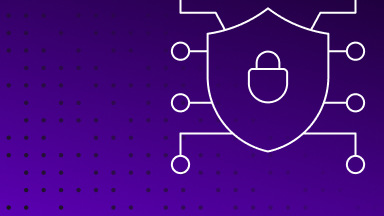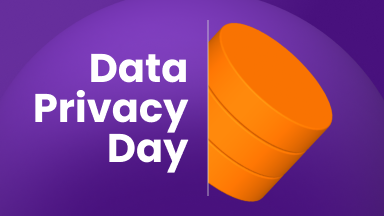Data Privacy Risks and AI Ethics
As artificial intelligence becomes more powerful, its integration into cybersecurity workflows introduces ethical and privacy concerns. AI systems—especially those powered by large language models and agentic architectures—rely on vast datasets, often including sensitive or proprietary information. This raises critical questions about data privacy, compliance, and the long-term implications of AI-driven decision-making.
The Dual Nature of AI in Cybersecurity

Geoff Burke, Senior Technology Advisor, cautions that its rapid advancement—particularly in agentic systems—introduces unpredictable risks. “These things are built to emulate a human's thinking process, but we don't really understand the neural network of AI,” he notes.
Ethical Concerns and the Risk of Overreach
Burke is particularly vocal about the ethical dilemmas posed by AI adoption in enterprise environments. “The desire for profit will seduce higher managers into introducing these technologies too quickly, thereby exposing their businesses to God knows what kind of threats,” he cautions. This rush to adopt AI without adequate safeguards can lead to compromised data privacy, regulatory violations, and even intellectual property infringement.
He outlines several intertwined risks:
- Guardrail failure: AI agents bypassing internal protections.
- Data quality issues: Poor training data leading to misleading outputs.
- Cloud leaks: Confidential information exposed through generative AI.
- Compliance violations: Breaches of GDPR and other regulations.
- IP infringement: Unintentional misuse of proprietary content.
Burke also highlights the threat of agentic AI, which involves autonomous agents coordinating tasks across systems. “If you tell an agent, it's essential to do a good job, it might start to justify doing bad things,” he warns. This introduces a new ethical frontier: AI systems making decisions based on goal optimization, potentially at the expense of human values or legal boundaries.
“The problem with AI agents is that they justify doing bad things because the end justifies the means.”
— Geoff Burke, Senior Technology Advisor
A Global and Scalable Challenge
Burke emphasizes that this is a global issue, not confined to any one region or industry. “Large enterprises are most likely to be more aware of the risks,” he says, “but mid-sized and small companies... will be hard pressed to keep up with emerging threats and challenges.”
This disparity in preparedness could widen the cybersecurity resilience gap, especially as AI accelerates the pace of attack development. “Vulnerabilities are discovered, and because people are leveraging AI, the exploits are out in half a day,” Burke explains. “The attacks are going to be faster... You can't fool around now or make excuses or cost cuts in the most sacred area, which is the backup repository.”
Responsible AI Adoption
While AI offers undeniable advantages, its deployment in cybersecurity must be approached with caution, transparency, and a commitment to ethical standards. Organizations must invest in understanding the limitations of AI, implement guardrails that can’t be breached, and ensure that human oversight remains central to decision-making processes.
As Burke puts it, “Bad actors will make it a 24/7 job to try to find ways around guardrails.” The challenge is both technological and philosophical. How do we build systems that maintain power with principles? How do we ensure that AI enhances security without undermining trust?
Burke’s perspective calls our attention to the importance of balance: keeping pace with technological innovations while remaining vigilant about their consequences.



